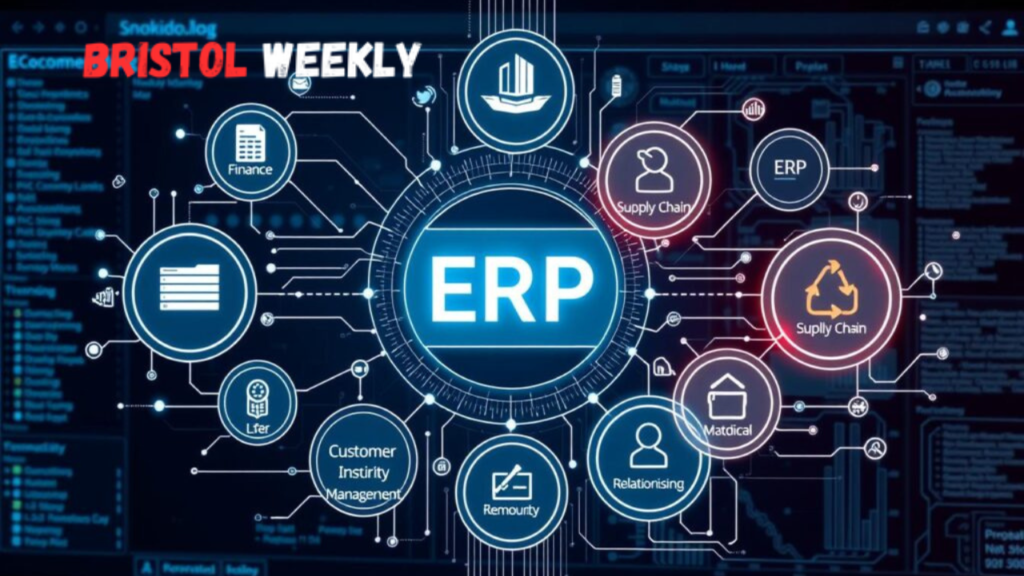In today’s fast-paced business environment, organizations are continuously searching for ways to streamline their operations and enhance efficiency. One of the most effective tools to achieve these goals is an ERP (Enterprise Resource Planning) system. If you’re exploring the world of ERP systems, understanding their core features and benefits is essential. A great place to start is by diving into the detailed insights shared in this article: https://noticviralweb.blogspot.com/2024/04/erp-planificacion.html, where you’ll find an in-depth look at ERP planning and how it can transform your business.
What is ERP Planning?
ERP planning involves integrating various business processes such as accounting, supply chain management, and human resources into a single system. This allows businesses to have real-time access to critical data, promoting better decision-making and operational efficiency. At the heart of this integration is a user-friendly system that connects departments and enables them to collaborate effectively. For a deeper dive into the specifics of ERP planning, check out https://noticviralweb.blogspot.com/2024/04/erp-planificacion.html, which outlines the essential features of ERP solutions.
Why ERP Planning is Crucial for Businesses
Implementing ERP software can significantly streamline processes within an organization. By centralizing data and automating routine tasks, ERP systems reduce human error, improve data accuracy, and save valuable time. Whether you’re looking to improve inventory management or enhance customer service, ERP systems are versatile enough to meet a variety of business needs. As discussed in https://noticviralweb.blogspot.com/2024/04/erp-planificacion.html, the integration of ERP allows businesses to take control of their operations in a way that increases overall productivity.
Key Benefits of ERP Planning
- Increased Efficiency: With an ERP system in place, businesses can automate many processes that were once manual. This frees up time for employees to focus on more strategic tasks, ultimately driving productivity. The insights provided in https://noticviralweb.blogspot.com/2024/04/erp-planificacion.html highlight how automation leads to reduced operational costs.
- Real-Time Data Processing: One of the standout features of ERP systems is their ability to provide real-time data, helping managers and decision-makers make informed choices quickly. This real-time capability is crucial in industries where market conditions change rapidly.
- Collaboration and Integration: The article on https://noticviralweb.blogspot.com/2024/04/erp-planificacion.html explains how ERP systems help different departments within a company to work in harmony by sharing data and insights in real-time. This collaboration fosters a unified approach to achieving company goals.
Steps to Implement ERP Planning
While ERP systems offer incredible benefits, their successful implementation requires a well-thought-out strategy. The first step is identifying the specific needs of your business. From there, you can select an ERP system that meets these requirements. Following a structured implementation plan, as outlined in https://noticviralweb.blogspot.com/2024/04/erp-planificacion.html, is essential for ensuring the system is integrated smoothly and adopted by your team.
- Assess Business Needs: Before selecting an ERP system, it’s crucial to identify what you need from the system. Look at your business goals and consider factors such as scalability and functionality.
- Choose the Right ERP Vendor: The right ERP vendor will offer solutions that align with your business objectives. Researching vendors and reading detailed guides like the one at https://noticviralweb.blogspot.com/2024/04/erp-planificacion.html can help you make an informed choice.
- Data Migration and Training: Successful ERP implementation also depends on properly migrating existing data to the new system. Proper training for employees is just as important to ensure the system is utilized to its fullest potential.
Best Practices for ERP Planning Success
Maximizing the potential of your ERP system requires continuous refinement and understanding. Here are some tips to ensure success:
- Customize the System: Customize your ERP software to suit your specific needs. As mentioned in https://noticviralweb.blogspot.com/2024/04/erp-planificacion.html, tailoring the system can help ensure it meets the exact requirements of your business.
- Monitor Performance: Regularly evaluate how well the system is working and make adjustments when necessary. The post stresses the importance of continual monitoring for optimal performance.
FAQs about ERP Planning
What is ERP planning?
ERP planning involves integrating various business processes like finance, HR, and inventory management into a single software system. This integration allows businesses to optimize operations and make data-driven decisions.
Why should my business implement ERP software?
ERP systems help businesses streamline operations, reduce errors, and automate tasks. By centralizing information, ERP systems provide a unified platform for managing all aspects of your business.
How do I choose the right ERP system for my business?
The right ERP system will depend on the specific needs of your business. Factors such as scalability, customization options, and industry-specific features should be considered. Check out https://noticviralweb.blogspot.com/2024/04/erp-planificacion.html for insights into choosing the right ERP solution.
What are the common challenges during ERP implementation?
Common challenges include data migration issues, lack of training, and resistance to change from employees. However, these can be minimized with proper planning, training, and support.
Conclusion: Embrace ERP Planning for a Smarter Business
ERP planning, as explored in https://noticviralweb.blogspot.com/2024/04/erp-planificacion.html, plays a pivotal role in transforming how businesses operate. By automating tasks, improving collaboration, and providing real-time data, ERP systems enhance efficiency and enable companies to adapt to market demands. For businesses looking to stay competitive, investing in ERP planning is a smart move.
By following the implementation steps, adhering to best practices, and ensuring proper customization, organizations can harness the full potential of ERP systems. The future of ERP is evolving with advancements in AI, machine learning, and cloud solutions—making now the perfect time to embrace this transformative technology.
